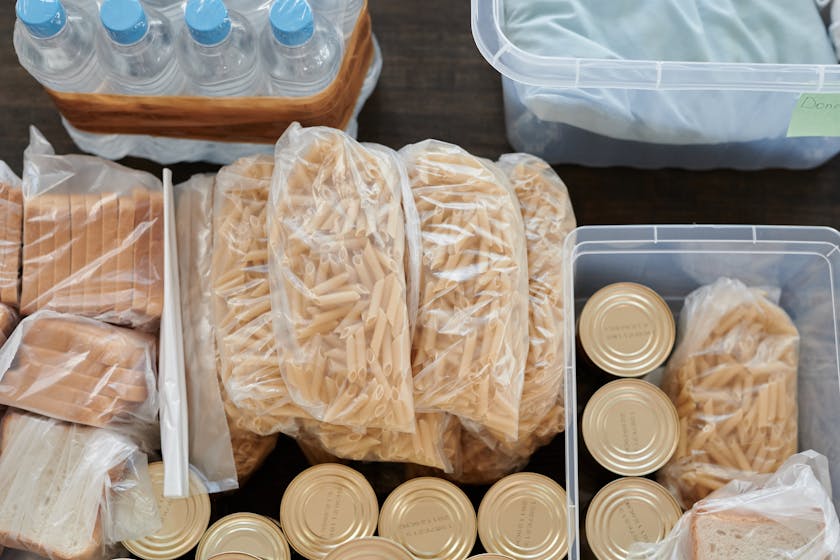When considering emergency preparedness, bulk meal storage is a crucial aspect that ensures you have enough sustenance in unpredictable situations. Having a well-stocked pantry can provide peace of mind and, more importantly, vital nutrition during emergencies. Whether you’re dealing with power outages, natural disasters, or other unforeseen events, knowing how to store meals efficiently can make all the difference.
Understanding the Basics of Bulk Meal Storage
The foundation of bulk meal storage for emergency preparedness lies in understanding what types of foods to store and the conditions they require for longevity. Non-perishable items, such as rice, beans, canned goods, and dehydrated foods, are staples in any emergency food supply. These items typically have long shelf lives and require minimal preparation.
Selecting the Right Containers for Long-Term Storage
Choosing appropriate containers is crucial for protecting your food from moisture, pests, and other contaminants. Food-grade buckets with airtight lids, Mylar bags with oxygen absorbers, and vacuum-sealed containers are among the best options. Always label your containers with the date of storage to keep track of expiration dates.
Creating a Diverse and Nutritious Meal Plan
To ensure variety and balanced nutrition, your bulk meal storage should include proteins, carbohydrates, fats, vitamins, and minerals. Diversify your stockpile with freeze-dried fruits and vegetables, powdered milk, and a range of spices and seasonings to keep meals flavorful.
Organizing Your Bulk Meal Storage Space
Effective organization of your storage space maximizes efficiency and prevents food waste. Use shelving units to keep containers off the ground and organize items by category and expiration date. This system makes it easier to rotate your stock and use older items first.
Maintaining Proper Storage Conditions
The ideal conditions for bulk meal storage include a cool, dry, and dark space. Basements and closets can be suitable locations, provided they are free from temperature fluctuations and humidity. Regularly check your storage area for signs of dampness or pest infestations.
Regular Inspection and Rotation of Stock
Consistently inspecting your food supply for spoilage or damage is a critical aspect of maintenance. Rotate your stock by using older items in your regular cooking routine and replacing them with fresh supplies. This practice ensures that your emergency food remains edible and safe.
Integrating Freeze-Dried and Dehydrated Foods
Freeze-dried and dehydrated foods are excellent choices for bulk meal storage due to their lightweight and compact nature. They have lengthy shelf lives and can be rehydrated easily, providing quick and nutritious meals during emergencies.
Planning for Special Dietary Needs
Consider the dietary restrictions and preferences of your household when planning your emergency food supply. Stock up on gluten-free, dairy-free, or vegetarian options as needed to accommodate all members of your family.
Learning Preservation Techniques
Understanding basic food preservation techniques, such as canning and drying, can expand your emergency food options. Preserving your own fruits, vegetables, and meats can be a cost-effective way to build your bulk meal storage.
Ensuring Access to Clean Water
In addition to food, having a reliable source of clean water is vital for emergency preparedness. Store a minimum of one gallon of water per person per day, and consider investing in water purification methods such as filters or tablets.
Preparing for Cooking and Meal Preparation
Having the means to prepare your stored food is just as important as the food itself. Include a portable stove, fuel, and a basic set of cookware in your emergency supplies. Remember to store matches, lighters, or a fire starter in a waterproof container.
Investing in Emergency Cooking Resources
Explore resources such as emergency cookbooks and online guides that offer recipes and tips for preparing meals with limited ingredients and cooking methods. These resources can be invaluable in making the most of your bulk storage during emergencies.
By taking the time to establish a comprehensive bulk meal storage system, you’ll be well-equipped to feed your family during times of crisis. Consistent evaluation and improvement of your emergency food plan will ensure you’re always ready, no matter what the future holds.



